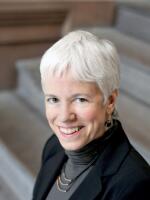Religious and progressive groups say they will press New York Governor Andrew Cuomo and the state legislature to adopt what they call a “moral” state budget in 2019. The groups brought their views to the Capitol just before Christmas.
The Reverend Peter Cook, with the New York State Council of Churches, says the new legislative session should focus on the higher goals of fighting poverty and racism, protecting the environment and strengthening democracy.
At a press conference outside the state Senate chambers, Cook also said the state’s tax structure needs to become more equitable, and economic development programs should focus on the needs of the poorest citizens.
“There’s an unimaginable amount of wealth in our state,” said Cook. “But at the same time, we have a tragic number of people who contribute a lot to our economy but who are making meager wages and who can’t meet their most basic needs. Many live in our cities and rural communities in abject poverty."
The Council of Churches, along with other religious and union-based groups, says the state’s income tax surcharge on millionaires should be expanded, to include additional higher brackets for multi-millionaires and billionaires. They would also like to add more brackets to the real estate transfer tax, which is 0.4 percent no matter what the property’s value. And they would like the tax to apply to cash real estate transactions, not just to mortgages.
Afterward, Cook explained that the groups are not just in favor of raising taxes. They would also like to see property tax relief. He says lower income people bear too much of the burden of New York’s high property taxes.
“The property taxes are subsidizing the tax cuts of the people at the very top of the economic system,” Cook said. "People who probably live in about three or four zip codes in the entire state. These are taxes which really impact the smallest minority in our state and who were the overwhelming beneficiaries of the federal Tax Cut and Jobs Act."
Cuomo, when he announced his 2019 legislative priorities earlier this month, continued a more fiscally conservative approach that he’s stuck to in the past. The Democrat wants to keep a 2 percent per year cap on property taxes, but says he does not want to expand taxes on the wealthy beyond extending the state’s income tax surcharge on those making more than $1 million a year when it expires in December 2019.
Cuomo has said repeatedly that he worries wealthy New Yorkers will leave the state if their taxes go up, especially now that federal tax code changes make it harder to deduct state and local taxes over $10,000.
But Cook says he doubts that many rich people would leave the state. He says even after the income tax surcharge was imposed on millionaires a few years ago, the number of those making over $1 million has grown in New York State.
“People stay in New York because they can make a lot of money here in a way that they can’t in other parts of the country,” he said.
The Council of Churches and the other groups say they are pleased with some of the governor’s plans for 2019 including cutting carbon emissions, expanding voter access and stricter gun control laws, among other things.
But they also want more money spent on providing health care to the uninsured and under insured, and to boost public education spending. They say they are hopeful that a newly Democratic state Senate, along a Democratic Assembly and governor, can be more receptive to their proposals.
The Reverend Emily McNeill, with the Labor Religion Coalition, says the first indication of the newly Democratic state legislature’s values will come when they craft the details of a state budget.
“The first test of this new legislature will be whether they will reject austerity and pass a budget for the many,” McNeill said. “Or continue the inequality-increasing policies of the last decade. Our communities just can’t afford to wait any longer.”
The budget is due at the end of March.







